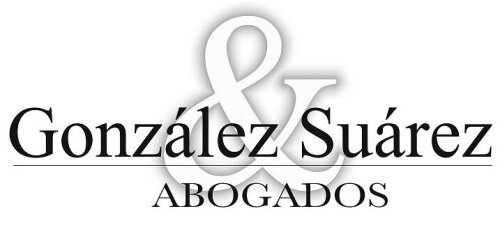Best Bankruptcy Lawyers in Spain
Share your needs with us, get contacted by law firms.
Free. Takes 2 min.
Or refine your search by selecting a city:
List of the best lawyers in Spain
About Bankruptcy Law in Spain
Bankruptcy law in Spain, known as "Concurso de Acreedores," provides a legal framework for individuals and businesses unable to meet their financial obligations. This legal process is designed to offer a fair solution for creditors while also giving the debtor a chance to reorganize or liquidate assets if necessary. Spanish bankruptcy law underwent significant reforms in recent years, aiming to streamline procedures and provide greater protection and options for debtors.
Why You May Need a Lawyer
Seeking a lawyer's assistance in bankruptcy cases is crucial for several reasons. Legal representation ensures that your rights and interests are adequately protected throughout the process. A lawyer can help:
- Navigate complex legal requirements and paperwork.
- Negotiate with creditors to potentially reduce debt or improve terms.
- Represent you in court proceedings and communicate with the bankruptcy judge.
- Develop a strategic plan for managing or discharging debt.
- Ensure compliance with all relevant deadlines and legal obligations.
Local Laws Overview
Key aspects of Spanish bankruptcy law include:
- Types of Bankruptcy: Voluntary (initiated by the debtor) and involuntary (filed by creditors) bankruptcy proceedings.
- Phases: The process involves the common, advanced, and resolution phases, where agreements and asset liquidations can be determined.
- Moratorium: Upon initiating bankruptcy, an automatic stay is placed on debt collection efforts, offering temporary relief from creditors.
- Creditors' Agreement: Debtors may propose agreements to creditors to pay off debts under new terms.
- Liquidation: If agreements cannot be reached, the debtor's assets may be liquidated to satisfy debts.
Frequently Asked Questions
What is the difference between voluntary and involuntary bankruptcy?
Voluntary bankruptcy is filed by the debtor, acknowledging the inability to meet financial obligations. Involuntary bankruptcy is initiated by creditors seeking debt recovery from the debtor.
How does bankruptcy affect my credit score in Spain?
Filing for bankruptcy can negatively impact your credit score, making it challenging to obtain credit in the future. The impact and duration vary based on individual credit histories and the specific bankruptcy case.
What debts are discharged in Spanish bankruptcy?
Commonly discharged debts include unsecured debts like credit card bills and personal loans. Secured debts, certain taxes, and alimony generally cannot be discharged.
Can businesses file for bankruptcy in Spain?
Yes, both individuals and businesses can file for bankruptcy in Spain. Business bankruptcies often involve more complex legal and financial considerations.
How long does the bankruptcy process take?
The duration of the bankruptcy process varies, typically ranging from a few months to several years, depending on the complexity of the case and the parties involved.
Will I lose my home if I file for bankruptcy?
Home retention depends on various factors, including the type of bankruptcy and home equity. Legal guidance is crucial to understanding your specific situation.
Is it possible to keep any assets after filing for bankruptcy?
Yes, certain assets may be exempt from liquidation, allowing you to retain essential belongings. The specifics depend on Spanish bankruptcy exemptions and legal advice.
Can bankruptcy stop collections and lawsuits against me?
Initiating bankruptcy provides an automatic stay that temporarily halts collections, foreclosures, and lawsuits while the bankruptcy case is ongoing.
What is the creditor agreement process in Spanish bankruptcy?
The creditor agreement process allows creditors and debtors to negotiate new terms for debt repayment, potentially avoiding asset liquidation.
How can I find a bankruptcy lawyer in Spain?
Seeking recommendations, researching online directories, and consulting the local bar association can help you find a qualified bankruptcy lawyer in Spain.
Additional Resources
Various resources may assist those seeking information or help with bankruptcy in Spain, including:
- Commercial Courts: Handle bankruptcy filings and related legal proceedings.
- Ministry of Justice: Offers information and guidance on bankruptcy laws and procedures.
- Spanish Bar Association: Provides directories and resources to find legal professionals specialized in bankruptcy.
- Consumer Protection Agencies: Offer advice and support for individuals facing financial difficulties.
Next Steps
If you require legal assistance with bankruptcy, consider the following steps:
- Consultation: Schedule a consultation with a bankruptcy lawyer to discuss your financial situation and legal options.
- Document Preparation: Gather financial records, bills, and correspondence related to your debts to present to your lawyer.
- Stay Informed: Educate yourself about basic bankruptcy principles and your rights and obligations under Spanish law.
- Consider Alternatives: Explore debt settlement or restructuring options as potential alternatives to filing for bankruptcy.
- Make Informed Decisions: Work with your lawyer to develop a tailored strategy for navigating your bankruptcy case efficiently and effectively.
Lawzana helps you find the best lawyers and law firms in Spain through a curated and pre-screened list of qualified legal professionals. Our platform offers rankings and detailed profiles of attorneys and law firms, allowing you to compare based on practice areas, including Bankruptcy, experience, and client feedback.
Each profile includes a description of the firm's areas of practice, client reviews, team members and partners, year of establishment, spoken languages, office locations, contact information, social media presence, and any published articles or resources. Most firms on our platform speak English and are experienced in both local and international legal matters.
Get a quote from top-rated law firms in Spain — quickly, securely, and without unnecessary hassle.
Disclaimer:
The information provided on this page is for general informational purposes only and does not constitute legal advice. While we strive to ensure the accuracy and relevance of the content, legal information may change over time, and interpretations of the law can vary. You should always consult with a qualified legal professional for advice specific to your situation.
We disclaim all liability for actions taken or not taken based on the content of this page. If you believe any information is incorrect or outdated, please contact us, and we will review and update it where appropriate.
Browse bankruptcy law firms by city in Spain
Refine your search by selecting a city.
















